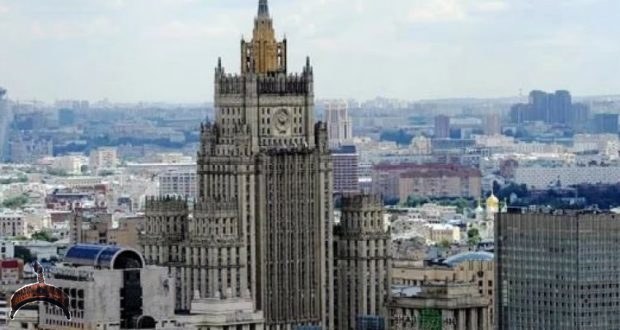By Evgeny Krutikov
Translated by Ollie Richardson and Angelina Siard
cross posted with http://www.stalkerzone.org/russia-squeezes-out-the-west-from-africa-without-a-fight/
source: https://ria.ru/analytics/20180601/1521817838.html
The Central African Republic “is captured by Russian mercenaries”. Mozambique “relaunches” relations with Russia and considers the list of weapons that it wants to receive. The Democratic Republic of the Congo suggests to Russia to “enter” into military cooperation. Somewhere far away negotiations on building a Russian military base in Djibouti are being conducted.
These aren’t the paranoid headlines of the BBC or CNN. This is the reality of the last two months. It isn’t so close to our public as, say, the events in Kiev, and remains somewhere on the periphery of attention. But our American and European partners were already seriously disturbed by the “Russian invasion” of Black Africa, which in terms of geographical coverage already exceeds the memorable times of the peak of Soviet influence. And it is being built on a completely different principle.
The West started to become very nervous after March 30th, when in the Central African Republic (CAR) the second anniversary of the election to the presidency of Faustin-Archange Touadéra was celebrated (at the stadium in the capital of Bangui). The President arrived to a stadium that was once upon a time built by the French accompanied by suspiciously white protection dressed in camouflage without markings. Formally the protection of such events had to be provided by Rwandans from the remnants of the peacekeeping forces of the UN in the CAR. But a week before this earlier unknown, but well armed and organised white people replaced Rwandan patrols on the city streets.
Soon it became clear that the white security guards completely control the presidential administration, the garage of the President, and armored vehicles and have unlimited access to his movement and to key figures from Touadéra’s environment. White patrols appeared on the streets of Bangui, and European-looking advisers were noticed in the military units of the CAR already not only in the capital. The French, concerned by their historical responsibility for their former colonies, began to clang bells. And here President Touadéra explained everything.
His administration officially reported that from now on “there is a group of Russian special forces for strengthening the security of the President”. A new position appeared in the structure of the presidential administration — a “security director” from among the Russian officers who is also responsible for the work of the “group of bodyguards”. The French affirm that this same officer is also a “key intermediary for contact between the CAR and Russia in the defensive and economic sphere”.
Already on March 31st President Touadéra hosted a parade of troops from the first company (200 people) of the Central African Army, which was completely rearmed with Russian weapons, dressed in Russian camouflage, and Russians also commanded the parade. In general the agreement on the Russian modernisation of the CAR’s army was reached in October of last year in Sochi, where Touadéra traveled to. He initially asked to prepare two battalions (1,500 people) with shooting arms, grenade launchers, and armored vehicles. For this purpose it was required to lift the restrictions of the UN on arms deliveries to the CAR. One month later the UN agreed to partially lift these restrictions for Moscow, and on January 26th the first Il-76 military transport aircraft landed in Bangui.
The Americans were especially outraged by that fact that President Touadéra ordered to hand over to “Russians” the staff Ford cars that were earlier delivered by the Pentagon to the CAR as military aid. $1.5 million appeared in the hands of Russians, who “unscrupulously drive around” in these “Fords” across Bangui. Then Touadéra handed over “Palais de Berengo” – the former residence of the notorious dictator Bokassa that was abandoned in the suburbs of Bangui – to the Russian military advisers for accommodation and as a HQ.
“We can’t do anything. The Russians wait for a reaction from America. In addition, they use methods that we don’t use,” said one unnamed French diplomat in the CAR. “They impudently bribe everyone who opens their doors in front of them”.
(Look who’s talking! France historically lived in the CAR only on bribes — and they were given and taken in both directions. The French, by the way, tried to make their protégé the President— a woman, the mayor of Bangui Catherine Samba-Panza. But in February, 2016 the rector of the local university Faustin-Archange Touadéra won a resolute victory at presidential elections, and the French started to gradually depart to Gabon and Mali)
One of the main complaints of local residents about French paratroopers concerned their full uselessness. They quickly took under their control those diamond uranium mines that remained still formally in French concession, and didn’t do anything on the streets of Bangui. They even started to be accused of assisting genocide, comparing what happened in Bangui to Rwanda in recent years. And there “these Russians” appeared.
So far there isn’t any data about who now controls the operating diamond and uranium mines. Usually this happens rather quickly and without bloodshed. Another thing is that physical control over fields and mines doesn’t mean the legal transition of property. For President Touadéra the efficiency of the actions of the contingent invited to protect the borders, eliminating the threat from Muslim groups, and the definitive restoration of security across the entire territory of the country – starting with the capital – are more important. And if the French weren’t able to cope with this, so why shouldn’t the Russians try?
But the recent Russian agreement with Mozambique remained less noticed by the western media. At first the Ministers of Defence of the Russian Federation and Mozambique signed an agreement on the free entrance of Russian warships to Mozambiquean ports. Under this agreement Russian warships can stop in Mozambiquean ports according to the simplified scheme for service and refuelling, which turns this South African country practically into a Russian Navy base. This, of course, is not as fully-fledged as the base in the Syrian Tartus, but it is close to it.
Then (on December 22nd, 2015) a full contract on military-technical cooperation providing the delivery to Mozambique of Russian weapons, equipment, as well as the training of personnel was signed. And on May 28th, 2018 the Foreign Minister of Mozambique José Pacheco stated that the nomenclature of these deliveries is being discussed. “This agreement in the military sphere is a part of the general process of launching bilateral relations between Mozambique and Russia,” he noted. “Among the priorities are training and deliveries of different equipment”. “We are in the process of discussing with Russia technical questions to define what exactly Mozambique needs and how to finance these purchases”.
For this to happen in a country in which there wasn’t even Soviet presence, despite the continuous attempts of the USSR to be rooted in the Central African region – the Democratic Republic of Congo – became an unexpected breakthrough. The convention on military cooperation between Moscow and Brazzaville was signed in 1999, but remained “dead paper” for political reasons (the agreement didn’t enter into force because of the pro-West position of the government of Congo).
And on May 27th of this year the convention was revived. Deliveries of Russian arms, equipment, and the other specific equipment are included in the new agreement. Besides this, the presence of Russian advisers and the training of military experts from the Congo in Russia is being stipulated. “Today we are in a new paradigm, in a standoff with the West, and since Russia is interested in Africa, we see its presence in the CAR, we ‘renew’ an old document,” said a Congolese politician.
A separate line of negotiations are held with the oil-bearing South Sudan, which urgently needs armored vehicles and heavy artillery, and Djibouti, which sells wholesale and at retail its strategically important territory for the construction of foreign military bases.
Negotiations over the construction of a Russian military base near an already working Chinese one and an American one not far from here have been ongoing for a long time, but were interrupted because of a financial crisis. There is in general no ideology in the actions of the authorities of Djibouti – for them foreign bases is only a question of financial turnover. At this time Russia would like to receive immediate access to the airfield and seaport that is already at a stage of construction on an open plane (in the Djiboutian way, “in the pure desert”). It is the Americans living in this airfield, not wanting to share it with the Russians, who resist it. But negotiations nevertheless continue.
The Americans affirm that unexpected and massive Russian penetration into the dark continent is the beginning of a large-scale “battle for Africa”, which, unlike the “proxy”-wars of the cold war, will use not only purely armed methods, but also political-strategic ones. They claim that a certain Russian “Africa project” exists.
Whether it exists or not is difficult to say. But already now it is possible to claim that Black Africa almost for certain will become one more “competitive zone”, as our American partners like to call it in recent times.
 Ọmọ Oòduà Naija Gist | News From Nigeria | Entertainment gist Nigeria|Networking|News.. Visit for Nigeria breaking news , Nigerian Movies , Naija music , Jobs In Nigeria , Naija News , Nollywood, Gist and more
Ọmọ Oòduà Naija Gist | News From Nigeria | Entertainment gist Nigeria|Networking|News.. Visit for Nigeria breaking news , Nigerian Movies , Naija music , Jobs In Nigeria , Naija News , Nollywood, Gist and more









